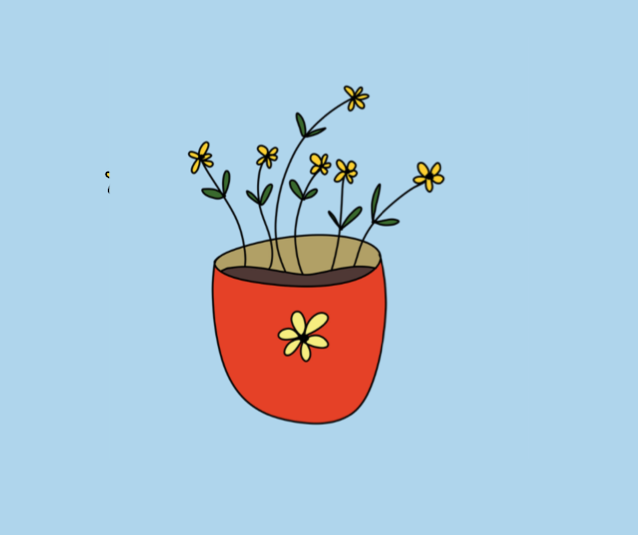When you realise you’re neurodivergent: a welcome letter

For those who have a formal diagnosis see this alternate version of the letter.
Dear fellow perfect flawed evolving human,
You’ve always felt like you didn’t belong or that you were different to everyone else. Then you read something, or saw something, or someone said something to you, and it planted a seed. You read or heard more about other people’s experiences and it dispelled all sorts of misconceptions you previously had about neurodivergent labels. Maybe you came to it because of your child.
You’ve wrestled with it. Am I? I think I might be? But what if I’m not really? Should I seek a diagnosis? Do I deserve one? What if I don’t exactly fit the DSM-5 criteria? Will people think I’m a fraud?
Maybe you’ve had a professional tell you its all an attention-seeking tiktok trend. I hope you were able to dismiss such nonsense and continue to seek out your own answers.
It’s been a while and you are fairly sure at this point that you must be neurodivergent. Nothing else can explain your out-of-place-ness. You relate so strongly to the anecdotes shared by other NDs. You might have looked into a formal diagnosis and decided it was not feasible or necessary, or you might be seeking one out in the future.
Whatever your situation, please accept my congratulations and a warm welcome to the community!
Maybe you have already started disclosing your neurodivergence online, or even in person. I can still vividly remember the first time I disclosed at an in-person Autism workshop. The presenter asked if anyone in the room was Autistic. I took a breath and tentatively put my hand up. I looked around – I was the only one. Everyone else identified as either a carer or a professional. It was terrifying and thrilling. What if someone challenged me? I didn’t have a formal diagnosis yet but I already knew. In time, I would get used to the comments of “but you don’t look Autistic” or “everyone’s a little autistic” and as my confidence grew in my own identity, I received these comments less and less when I disclosed.
It felt weird to say the words “I am Autistic” at first. But that is the nature of stigma. And that is the power of reclaiming language. The more I said it, the more secure I felt, and the more securely I said it. It was an act of activism that was incredibly empowering.
If you haven’t said it yet (which ever flavour of ND you identify as), I recommend giving it a try – if you have the capacity. Online ND spaces are a good way to start. The Autistic community in particular view self-identification as equally valid to formal diagnosis. It is generally not even a question that gets asked. If you believe you are Autistic, then you are.
But if you don’t feel ready to disclose yet, or choose not to, that is completely okay too – and don’t let anyone tell you otherwise. The reality is you might face skepticism or discrimination: friends, family, workplaces and particularly medical professionals. Know that it usually comes from a lack of knowledge on their part. Before all this, you may have had similar misconceptions. It will take time. And some spaces simply are never going to be supportive. You get to decide what will keep you safe.
Imposter syndrome is part and parcel of the late-identification journey – whether you have a formal diagnosis or not. There will be times when you wonder if maybe you made a mistake. You might start to question what it even means to be neurodivergent. Just know that it is all normal and you aren’t alone in your feelings. This is the beginning of something extraordinary but it will take time to process. Give yourself time and give yourself grace. These are the luxuries we probably have never felt we deserved.
You are still you. You hold in your hand a precious gift – that of deeper self-knowledge. It is only a starting point. And you get to decide what you do with it and what it means to you. You get to experiment and try things on and change your mind whenever you want. Your identity is yours. So when you are ready, go out and explore!
The world, up to now, has probably told you a certain story about what it means to be neurodivergent. The neurodiversity and disability movements and their associated communities will tell you different ones. I encourage you to explore them all.
Everyone has an opinion and everyone has an agenda. Some ideas will resonate with you and some won’t. There is history and controversies and loud voices and quiet ones and there is toxicity. You will bear witness to the impacts of individual and collective trauma, staunch ideologies, fragmentation and fear. You might participate in an argument or two yourself. But you will also feel belonging and relief and affirmation and pride that you may never have felt before. There is nothing quite like a lifetime of being the odd one out, only to come upon places where oddity is accepted and even celebrated. Relish these moments of belonging because it is a human right and a human need that too many of us have been denied for too long.
There can be so much pressure to have ourselves “sorted”. We seek out panaceas or epiphanies that will be transformative in the most efficient and effective way possible. We are used to doing things this way. Go easy on yourself. And that includes going easy on yourself about not being able to go easy on yourself! We are all doing our best and your best is perfect. Sometimes the harder we grasp at things the more elusive it can feel.
Knowing you are neurodivergent is finally having permission to question all the things we have been told and that we believe. You might discover some of them have been harming you or holding you back. You might want to work on changing them (not easy, quick nor straight forward but a worthwhile pursuit). You might discover things about yourself that you want to accept instead of trying to change (similarly, not easy but just as worthwhile). You might feel inspired to try to change the world.
Deciding where best to direct your finite energy is hard and will involve some trial and error (and being okay with making mistakes is hard too but, again, worthwhile!)
Or maybe you just need to lie in bed for a while and read trashy romance novels with earplugs in because you’ve realised your exhaustion is actually long-term burnout.
So rant, weep, feel anger and sadness, revel in epiphanies, try all the fidgets, read books, try medications, connect with the other oddballs of the world, explore therapies, take alone time, or find solace in safe routines, explore your mask gently, tell someone your thoughts and feelings, do whatever you need to do and whatever you feel ready to do. You are not alone. You will be okay. This is your story.
Who knows where this journey will take you? The future is limitless and this is only the beginning!
With love and fellowship,
Selina


